David Beiler - Reducing Labor Costs with Equipment - PODCAST TRANSCRIPT
June 12, 2025 at 10:00 a.m.Editor's note: The following is the transcript of a live interview with David Beiler from Equipter. You can read the interview below or listen to the podcast.
Intro: Welcome to Roofing Road Trips, the podcast that takes you on a thrilling journey across the world of roofing. From fascinating interviews with roofing experts to on the road adventures, we'll uncover the stories, innovations and challenges that shape the rooftops over our heads. So fasten your seatbelts and join us as we embark on this exciting Roofing Road Trip.
Heidi Ellsworth: Hello and welcome to another Roofing Road Trips from RoofersCoffeeShop. My name is Heidi Ellsworth and we are here with a really exciting podcast today. I have to tell you, who doesn't love equipment? Everyone loves tools, everyone loves equipment and so we have our friends from Equipter here today to talk about what's happening with crews, what's happening with labor. We have a labor shortage. We have a lot going on. What can solve that? The right equipment. We have David Beiler here today to talk to us about what's going on with labor crews equipment. Welcome, David. How are you?
David Beiler: Hey, Heidi. I'm doing great. Thanks for having me on here.
Heidi Ellsworth: I am so excited. I feel like we've kind of, well, maybe you've grown up, I feel like we've grown up together a little bit in this industry.
David Beiler: Absolutely. Yeah. Yeah. It's been a while. Obviously Dad has been involved in the industry since the '80s and so, yeah, even before I was born. So definitely, I literally have grown up in it.
Heidi Ellsworth: I love it.
David Beiler: We've known you all for a long time, too.
Heidi Ellsworth: A long time.
David Beiler: It's been good.
Heidi Ellsworth: A long time. So I love your family and I love what you guys do.
David Beiler: Thank you.
Heidi Ellsworth: You have the coolest equipment. Why don't we start with an introduction? If you could introduce yourself, tell us a little bit about Equipter and what you do.
David Beiler: Absolutely. Yeah, again, you mentioned it, my name is Dave Beiler. I'm the VP of sales and marketing here at Equipter and we manufacture and sell mobile, self-propelled, drivable trailers and we've been manufacturing the Equipter 4000 for over 20 years now, which was already mentioned. My dad designed, initially invented and designed it and so designed it specifically for the roofing industry and that's where we've been for the last 20 years and really exciting journey. So I'm happy to be here. Thank you.
Heidi Ellsworth: That's the thing. And really, you come from a roofing family who invented this product that really has solved so many problems, taking care of so many pain points. I'm interested, Dave, on what you've seen on how roofing contractors are really procuring labor and how that's been changing, especially over the last decade.
David Beiler: Yeah, you bring up a good point or question. The last decade, definitely seeing a trend in that it's changing, the landscape is changing as far as how to get the job done. I mean, at the end of the day, you still need to get a job done. It's still a service oriented process and so you can't get away from... I mean, you can't just put necessarily automation to it to get the job done. And so you still got to hire laborers and for most of it, you still got to hire skilled laborers. And so it's changing in that way. Obviously or one of the trends, obviously is one of moving to more of a subcontract type of landscape. And so yeah, just the nuances of that and the challenges that that brings on then in running a roofing company. Yeah, I'm excited to talk about some of that today, what we're seeing.
Heidi Ellsworth: It really is interesting because when I first started out many, many decades ago, it was really most contractors, they had their own employees, W-2s. They hired their own crews, they had their whole fleet. But to your point, over the last couple decades, especially the last 10 years, it feels like, the movement to using sub-crews has really taken off across the board and probably longer than 10 years, it's been a while that it's been growing and we are seeing it. It really kind of started on the residential side, but now we're seeing it on the commercial side also. I think there's some great stats out there from NRCA on just the growth of using subcontractors, basically. How do you see this creating challenges or disconnects for the contractors, the laborers, the homeowners, going from that old model to this newer model?
David Beiler: Yeah, I think some of the challenges that you see naturally is for one, communication is a lot more challenging in the sense of when you're in a more subcontract landscape or environment you have more people owning their business and so doing what they want versus doing what they were hired to do, in that sense. And so that obviously creates a challenge. And so just being able to level set expectations and all of that because... And I would say from the world we're living in today, customer expectations only increase, which again and maybe rightfully so because of better and newer technology, it's like, well, with that, your expectations level up a little bit.
David Beiler: And so I think that's the challenge that you find when moving to more of a subcontract environment is like, well, how do you meet those expectations from the customer? This is what the customer asks and this is what we're giving. And then going beyond that, because I think going above and beyond the customer's expectations is where then you get that referral business and that's where if their expectations were exceeded, job well done, referral gets passed along and obviously your business keeps growing.
Heidi Ellsworth: The contractors I've seen who really are successful with this communication between this triangle are really the ones who work so closely with their subcontractors. They work closely with them. Sometimes they're wearing their branded logos, but the homeowner feels comfortable knowing, okay, this is all one cohesive company. They don't know subcontractors or not when it's done correctly.
David Beiler: And I think you're right. To do it well, you got to care more than just about selling a job or collecting a check. You got to care through the whole process. And the people that I've seen do it well in that type of environment is that care the whole way through the process. They're not just there to sell a job and collect a check. It's there to, yes, sell a job with all the details, but then deliver on that deliver, deliver and then yeah, care about how their subcontractor is doing it. They care about the process. And then obviously at the end of the day, if we met your expectations, the sale is done, you collect the check. But that matters, obviously. But the ones that are doing it well care the whole way through the process.
Heidi Ellsworth: And I think one of the things and this really, I'm going to kind of pull it back, it doesn't matter if you're using subcontractors, if you have your own crews, if it's you and a small handful of your employees that you're just starting out, I think what really matters is looking at how you can stay competitive with those jobs while still delivering that quality and that great experience so you get the referrals. A lot of that has to do with safety and with the equipment that you have going. So can you talk a little bit about, with the labor costs rising, what can contractors, what are some strategies for contractors to use equipment automation to really make the jobs more profitable and more productive and safe?
David Beiler: Yeah. Well, you bring up a very crucial point. I think the challenging part or maybe even why the landscape has shifted or it's shifted is because of the labor shortage and hiring good laborers and managing that, that's challenging in and of itself. And so I would agree, whether you have subcontract or in-house crews, you could argue which one is better in that sense. And that's not why we're here. We're more here to talk about either way, however you do it, how do you set it up in a way that skills your business or enables your business to do it well.
David Beiler: One of the things and I would say over the years in any industry you're looking into, they went from the shovel to the backhoe and it's like, just makes sense. And so I think in any industry, you got to look at that as like, well, how can we integrate technology? How can we integrate the right equipment, for one, to take care of our crews? And again, I'm going to say whether they're in-house or they're subcontract crews, if you care about them, the more you can provide them with the right tools, the right equipment, the right technology, the happier they're going to be working with you or for you in that sense. And so I think there's a couple key takeaways in why providing the right equipment is important.
David Beiler: You already mentioned one, safety. With some of our equipment, the Equipter being able to lift your container up near to the roof edge is huge and you're not throwing debris near as far. And so I think things like that, safety is a key factor in making roofing a success in the coming years.
David Beiler: Efficiency, obviously, if you're collecting the debris before it hits the ground, makes your crews, your labor is much more efficient.
David Beiler: The other side of that also that I would see equipment and technology does is it helps in your marketing side to the homeowner. Again, like I mentioned before, exceeding their expectations in the sense of, okay, we all know roofing is messy. It's hard work. There's an average of seven to 10,000 pounds of debris on any average size residential roof. And again, setting an expectation for the homeowner in, hey, we have the right equipment, we have the right technology to do this well, to protect your landscape. So that alone, it can be a huge win for your company and why you would provide the right equipment.
Heidi Ellsworth: When I think about it, I think of all the jobs that I've visited and taken pictures of and been involved with, there's so many things that have changed over the years that I don't think people are even really thinking about. I know that a lot of material is rooftop loaded from the distributor, but there's still, when you think about all the material that has to go up to the roof, I can remember the days with a ladder and a guy with shingles over his shoulder going up the ladder. That doesn't have to be the case. I mean, it's such hard work.
David Beiler: More power to them.
Heidi Ellsworth: I know. To be able to have the equipment that takes the material up to the roof, that makes it safer, obviously less ladder work, but also just that weight. And I think today, Dave, one of the things I love is that people can work longer because it's not as hard on their bodies.
David Beiler: That's right. Yeah, I would totally agree with that. And from taking care of your contractor, your subcontractor or your employee, I think that's huge. They know when you care. It shows when you care. And so showing up with the right equipment, providing them with the right equipment.
David Beiler: And just side note, we've heard tons of different ways that different companies have implemented equipment. Obviously it's like, okay, it's challenging. Do you then, "Well, he's a subcontractor. I don't really care how he does it." And it's like, well, actually, I think maybe we should care a little bit more. And then whether it's negotiation in less per square or simply a benefit for working with me or for me, I can provide this equipment. And so there's varying ways that you can integrate it into your processes. And I know that's part of the challenge at times is, well, how do you implement it with when I'm selling and marketing and I have a subcontractor completing the work? It can be done and it pays off.
Heidi Ellsworth: It really does. And I would say one thing, we've had many podcasts and coffee conversations about this, but as you're setting this up and setting up really helping your sub-crews and working with them, also be sure to bring in your construction lawyer so that it's done the right way. So that everything is contracted out so it protects both the crews and your company, but it's very much, you can really put this together, to, I think, your point that you just made is that it can take less time.
Heidi Ellsworth: And the other one that has really totally caught me when you said that was there is supply and demand and the good crews, the good companies that are providing or subcontracting are in high demand. And so you want to make your company attractive.
David Beiler: Attractive and efficient, because it does matter how many square they can get done in a day, right? Or how many square you can get done in a day. And we've heard numbers as far as having equipment and specifically Equipter equipment, is that it makes their crews 25% more efficient. I mean, in a practical sense, look at it this way where let's say you have two or three guys either on the ground or up on the roof simply handling the debris. Again, average sized residential roof has seven to 10,000 pounds of debris. Well, if you don't need two guys to move 10,000 pounds of debris, hey, that's a win-win for everyone. And they're more efficient at the end of the day. You already mentioned this. At the end of the day they're not as wore out. They can get up the next morning and do the same thing a lot easier than...
David Beiler: And I'll put it maybe in perspective, I mentioned other industries. We're in manufacturing as well. So we manufacture our equipment. One thing that we did a couple years ago was invest in robotic welding equipment. And it's changed the game. And as far as efficiency, consistency in the work being done and I don't necessarily look at it as replacing people. I look at it as enabling people to where one person now is doing the work of three to four welders. And so, that person is enabled to do a lot more, be more efficient and he likes his job because he's less under the weld stick and of course he's setting up jigs and things like that. So just from a parallel perspective in different industries, equipment just makes a big impact either way you look at it.
Heidi Ellsworth: It really does. And you are so right. Robotics, automation, the right equipment is changing the landscape. So it's going to turn into not even being really a choice. If you want to stay competitive with other people in the field, you have to really look at how you're making labor faster, more productive, safer, easier, all of those things. And it doesn't really matter if it's full-time employees or subcontractors, to remain competitive and to really do well, you're going to have to be looking at all of these new technologies that are out there.
David Beiler: And I think it's natural for expectations to adjust and shift even from the customer. And I think you're right and with technology, rightfully so, the customer's expectations are going to continue to shift and expect, "Hey, did you really have to throw 10,000 pounds of debris on the ground, onto my flower beds?" Well, no, you don't. And so just that idea of customer expectations I think is huge. And aligning with that I think can be a huge part of making the roofing industry a continued success and a positive experience.
Heidi Ellsworth: Yeah, I agree a hundred percent. I want to go back to something that you said a little while ago 'cause I think that all plays into this, but you mentioned for the contractors, it's also part of their sales and marketing. Referrals are number one. We just had a great coffee conversations on that and they always have been. They always will be. If you can get referrals, they are the best.
David Beiler: Still the best, right?
Heidi Ellsworth: They're still the best. Nothing has changed in that world, just how you get them. And so when you really are looking at having this great Equipter machine there that is branded with your company, which is saving the flower beds, saving grandma's roses, when the sub-crews are in and out or the crews, I should say, whatever crews they are, the crews are in and out and everything goes smooth, that is what fuels referrals in the neighborhood. That is what really makes it happen. Compared to them seeing a bunch of debris coming down, everything looking bad, being there for a long time, they're like, "Ooh, I don't think I want to reroof. That doesn't look fun."
David Beiler: That's so true because of the fact of people, they don't want to just be sold something. They want to experience something. And I think that's maybe one of the things that has changed over the years is it's more than just selling something or selling a process or a service or a new roof. It's what happens in between all of that. And so I think it's so important from whether it's a referral perspective or even within a neighborhood, you have people driving by your job site every day. And so if they can see that the process that you're doing is different, it's better, it's more appealing, you automatically elevated your company, your company image.
David Beiler: And to the marketing side of that, you mentioned branding the Equipter 4000 with your own custom brand. We actually are just launching a product or service where we offer that, a custom brand or custom wrap package.
David Beiler: And so just from the idea or seeing the value of that, if you can have your equipment, whether it's in the afternoon, they're installing the shingles and your equipment is set up in the front lawn with your brand and company name on it, it's going to attract attention. And for the 20 years we've been doing this, we've heard numerous times and early on when we were out on the roof in a neighborhood, often we'd have people drop by and taking pictures, "What's that thing?" Or "What are you guys doing?" And it's like, "Well, here you are. Here's a card. Can we..." So yeah, there's a lot of benefits when you look at innovation and doing things a better way.
Heidi Ellsworth: I love the fact that you are wrapping it before it even gets delivered. That's really exciting.
David Beiler: That's right. We're just starting to offer that where it can show up branded with your company name and logo. So we're excited.
Heidi Ellsworth: We've been talking about referrals and how much that marketing, how important that is in the neighborhood, the branding and also the efficiency, the cleanliness of the site, all that kind of stuff. But just imagine, Dave, you gave me this vision in my head of brand-new Equipter rolling into the parking lot at the company and all the employees coming out and seeing it totally branded, this beautiful piece of equipment. All of your crews seeing this, that now they have this and the pride of the company, to me, that's culture. That's a part of really caring about your employees.
David Beiler: Absolutely. And it makes a huge difference. You mentioned culture and morale. When employees or contractors, either way, when they see you invest in stuff like that, it elevates the morale. And we all know that that makes a huge difference in the end product. If I'm ticked off all week, likely, I'm not going to provide as good of a product at the end of the week. But yeah, if you can elevate the morale and just have everyone energized, big difference. I think we all know that.
Heidi Ellsworth: Yeah. That's so cool. What a great service. So I would love to hear from you, just if you have a few stories to tell about contractors who have made the investment to provide that better experience for all of the stakeholders, whether that's their crews, their customers, whatever it is, do you have a couple of stories, a couple of examples of contractors that this has really just made a huge difference for them as they've been facing some of these labor challenges?
David Beiler: Yeah, I mean, my mind naturally goes to, I know Eustis Roofing in Florida, they've had a number of them for years and Jason just declares up and down the impact that it's made and right along the lines there of the company morale and employee retention, crews staying along with him just because providing the right equipment makes a huge difference to where he doesn't have crews going to the guy down the street near as often because of, hey, I got the right equipment for you. Why go anywhere else? And so from that perspective, I know Jason says that it's made a big difference in them and they've calculated over the years, they're looking at anywhere from 20 to 30% more efficient. And so of course that helps him as a company owner, but that also helps his crews getting more done at the end of the week and they're happy.
David Beiler: And so just things like that that we've seen. I know we've heard customers and one specifically, I know years ago he mentioned how his referral rate went from 65 to 80%. They were at 65% of their business was from referrals to where within three years it went to 80%. And so yeah, just things like that, that they were offering a better experience and homeowners loved that and were much quicker to refer them because of that. So different things like that that we've heard over the years that having the right equipment, providing the right equipment just helps all the stakeholders involved.
Heidi Ellsworth: That is so cool. And let's just kind of summarize that up too. You really said it with a couple of those examples, but the ability to reduce labor costs and increase profitability, really by having the right equipment, putting that there, how are you seeing the contractors, they are being able to negotiate better rates if it's sub-crews being able to get more done with their own crews? How does that work for reducing labor costs?
David Beiler: Yeah, I mean, there's a couple things that quickly come to my mind. One is from a sales perspective, a close rate. If you can increase your close rate, literally just 5%, one rep can bring in out of a hundred jobs that he's bidding, he can bring in five more just by raising his close rate by 5%. So the idea of work smarter, not harder, can kind of go across the board there in that.
David Beiler: And then, yeah, integrating within your company, we've heard guys say either negotiate a price, better price per square with their subcontract laborers to help integrate this into the process. Some guys have literally said, you know what? They're just providing it.
David Beiler: Or I've heard different ways of partnering together with a subcontractor to where they either partner together, he buys it for them or the subcontractor buys it and offers maybe a better or a price that is reasonable for both, that it makes sense for both. So yeah, whichever way you slice... I mean, I've heard it all different ways of how it's implemented and integrated, that it's a win-win.
Heidi Ellsworth: Yeah. And again, I'm just going to say this one more time just because it's really important because different, every state is different, all the different things when it comes to OSHA and everything else. So just as you're doing that, as you're starting to put that plan together, check in with your legal and also your CPA to make sure that you're doing the best for your business out there.
Heidi Ellsworth: Okay. Let's talk about contractors. You know what, I can still... Stephanie Baird from Bliss Roofing, she is a huge fan of Equipter and she's always like, "I'm heading to the Equipter booth." She loves her Equipters. How can contractors get started with getting an Equipter, getting it and we're going into the busy season, how do they get going?
David Beiler: Well, a couple ways. One obviously is outright purchase. We offer purchase options, obviously cash. There's finance options, 750, 850 a month. So if you look at from a cash flow perspective and I've literally heard this that, okay, let's say you get a five-year finance on it at whatever, 800 or so a month, guys have told us over and over again that it pays for itself within a year. And so from a cash flow perspective, you're actually first day on the job, it's making you money and you're making five-year payments on it. But again, we've heard guys say that pays for itself within a year. So we have a couple options there.
David Beiler: An even easier or less risk is rent it. Contact a local rental company. If you don't know of any in your area, go to equipter.com. We have a rental map there where you can get in touch with our rental providers across the U.S. So there's a couple of different ways to get the product on a job site, see what it does, see how it works for your company, your crews and get it working for you making money.
Heidi Ellsworth: Yeah, the rental is such a great idea. You can try it out. You can have your crews try it out, give you that feedback and excuse me, get excited about that. So really, really cool.
Heidi Ellsworth: Well, Dave, thank you so much. This is super excited and I'm really excited about your new option to wrap. I mean, wow, what a nice thing.
David Beiler: Yeah, no, we're super excited about that as well. I just think it's going to make just a big impact in customers across the U.S. Again, if you can have a custom wrap on your equipment and it can make an impact in their business and we're super excited about that. But thank you so much for having me on. This is good. It's a fun conversation. It's a good conversation to have.
Heidi Ellsworth: I love it. I love it. Such great stuff. So be sure to check out the Equipter directory on RoofersCoffeeShop and watch for that wrap option. So you're going to want to do that. That is very cool. Also, if you have any questions, be sure to reach out. There is all kinds of information on RoofersCoffeeShop and it'll also get you to the Equipter website and to reps so that you can get this going in your own business. So one more time, David, thank you so much.
David Beiler: Thank you, Heidi. It's been a pleasure.
Heidi Ellsworth: Been a pleasure. Thank you. And thank you all for listening. Wow, how informative. This is the stuff that I think makes such a difference and I just love the conversation. So be sure to check out the Equipter directory on RoofersCoffeeShop and check out all of our podcasts under the read, listen, watch under Roofing Road Trips. Be sure to subscribe and set those notifications so you don't miss a single episode. We'll be seeing you next time on Roofing Road Trips.
Outro: If you've enjoyed the ride, don't forget to hit that subscribe button and join us on every roofing adventure. Make sure to visit RoofersCoffeeShop.com to learn more. Thanks for tuning in and we'll catch you on the next Roofing Road Trip.


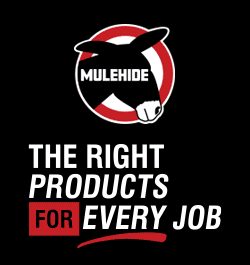
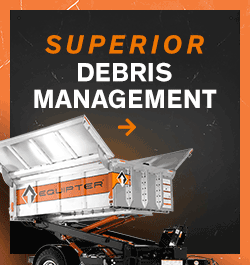









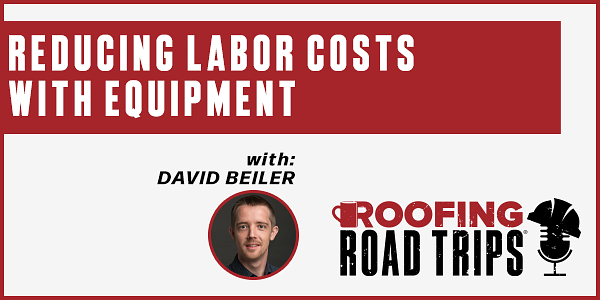
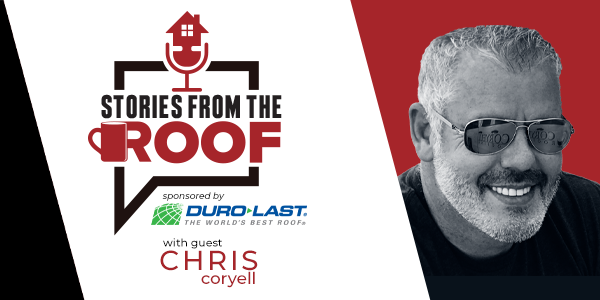
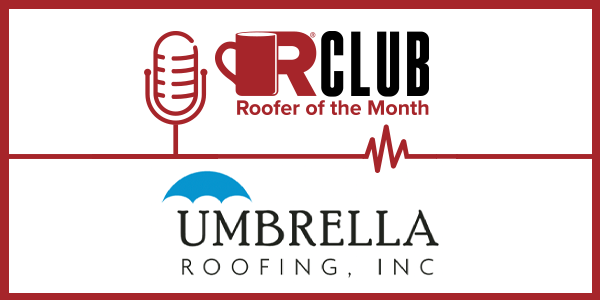
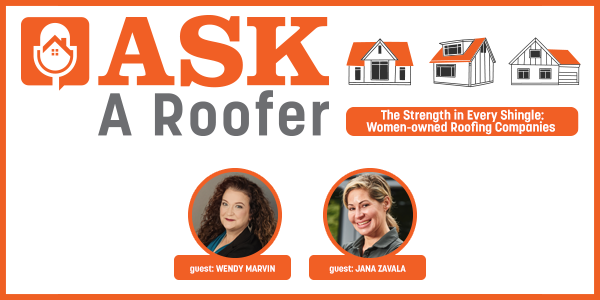


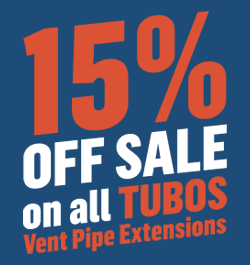


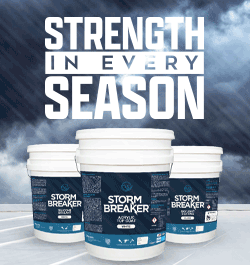
Comments
Leave a Reply
Have an account? Login to leave a comment!
Sign In